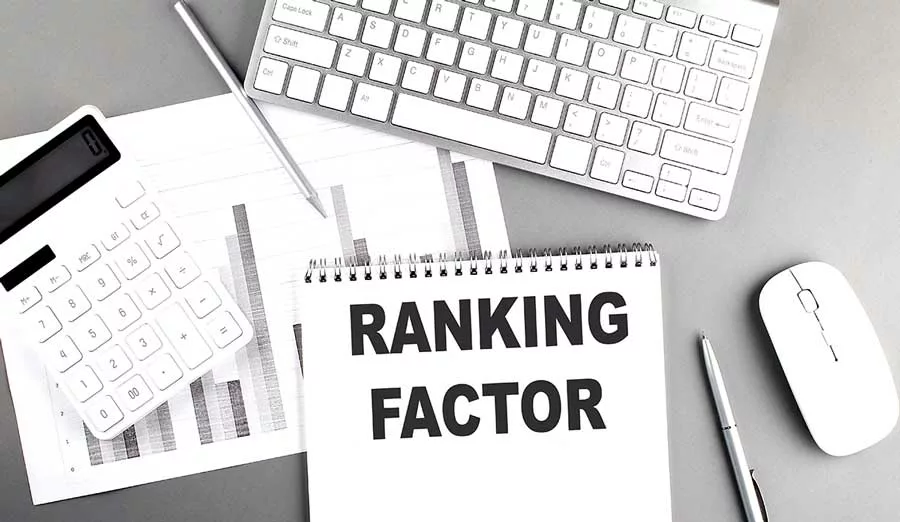Firstly SEO stands for search engine optimisation
Lets demystify the world of SEO! If you’ve ever wondered how search engines like Google and other search engines decide which websites appear at the top of the search results, you’re in the right place. SEO, or Search Engine Optimisation, is the art and science of making your website more visible and accessible to search engines, ultimately driving organic traffic to your online presence.
In simple terms, imagine the internet as a vast library, with billions of books (websites) covering a wide range of topics. Now, imagine you’re a librarian (search engine) tasked with helping people find the most relevant books when they ask a question. SEO is like organising and labelling the books in a way that helps the librarian understand what each book is about and how useful it may be to someone’s query.
When you optimise your website for search engines, you’re essentially providing clear signals to these digital librarians. You’re telling them what your website is all about, what topics you specialise in, and why your content deserves to be prominently displayed to users searching for related information.
By understanding how search engines work and implementing various SEO techniques, you can increase your chances of ranking higher in search results. This, in turn, brings more visibility to your website, drives targeted traffic, and potentially leads to increased conversions and business success.
Throughout this article, we’ll dive into the fundamental aspects of SEO, exploring topics like keyword research, on-page optimisation, link building, and content creation. We’ll break down complex concepts into easily understandable pieces, equipping you with practical knowledge and actionable strategies to enhance your website’s visibility on the web.
Whether you’re a business owner, a content creator, or simply curious about the fascinating world of SEO, join us on this journey to unlock the secrets behind getting noticed online and harness the power of search engines to your advantage. Let’s get started and embark on a quest to conquer the search rankings together!

Why is SEO Important?
In today’s digital age, where millions of websites compete for attention, standing out from the crowd has become increasingly challenging. This is where SEO, or Search Engine Optimization, steps in as a game-changer. SEO is not just a buzzword; it is a fundamental aspect of online success. Let’s delve into why SEO is so important and how it can transform your digital presence.
Enhanced Visibility: Imagine having a beautifully designed website with compelling content, but no one can find it. That’s where SEO comes in. It helps improve your website’s visibility in search engine results pages (SERPs), making it easier for your target audience to discover you. By implementing SEO strategies, you can increase your chances of appearing on the first page of search results, where the majority of clicks happen.
Increased Organic Traffic: Organic traffic refers to visitors who find your website through unpaid, natural search results. These visitors are highly valuable because they actively seek the information, products, or services you offer. SEO helps you optimize your website to attract relevant organic traffic. By targeting specific keywords and optimising your content, you can attract users actively searching for what you have to offer, leading to higher conversion rates and better ROI.
Trust and Credibility: Have you ever wondered why certain websites rank higher than others in search results? Search engines aim to deliver the most trustworthy and credible results to their users. By implementing SEO best practices, you establish your website as a reliable source of information in the eyes of search engines. This, in turn, enhances your credibility among users, as they trust search engines to provide relevant and high-quality results.
User-Friendly Experience: SEO not only focuses on search engines but also on improving the user experience on your website. By optimising your site’s structure, navigation, and loading speed, you create a seamless and enjoyable experience for visitors. A user-friendly website leads to longer visit durations, lower bounce rates, and higher engagement levels – all factors that search engines consider when determining rankings.
Competitive Edge: Regardless of your industry, chances are your competitors are already leveraging SEO to gain an edge. By neglecting SEO, you risk falling behind and missing out on valuable opportunities. Investing in SEO allows you to stay competitive, increase your market share, and outperform your rivals. It’s a way to level the playing field and ensure your business remains visible and relevant in the digital landscape.
Long-Term Results: Unlike some marketing strategies that yield short-term gains, SEO provides long-lasting results. Once you have optimized your website and earned a reputable position in search results, it becomes easier to maintain that position with regular updates and maintenance. While SEO requires ongoing effort, the rewards are sustainable and can continue driving traffic and conversions for months or even years to come.

What are the ranking factors for SEO
Understanding Search Engine Optimisation, relies on a variety of elements that work together to determine your website’s visibility, ranking, and overall success in search results. Let’s explore these essential factors and how they impact your SEO strategy.
- Keywords and On-Page Optimisation: Keywords are the foundation of SEO. They are the words or phrases that users enter into search engines to find relevant information. Incorporating relevant keywords strategically throughout your website’s content, titles, meta tags, and headings helps search engines understand the context and relevance of your pages. Effective on-page optimization also involves crafting engaging and informative content that satisfies user intent and encourages longer visit durations.
- Technical SEO: Technical SEO refers to the behind-the-scenes aspects of your website that affect its performance and crawlability by search engines. This includes factors such as website speed, mobile-friendliness, crawlability, indexability, XML sitemaps, structured data, meta titles and descriptions, title tags and website security. Ensuring that your website is technically sound and adheres to search engine guidelines helps search engines index your content effectively and provides a smooth user experience.
- Link Building: Link building is the process of acquiring high-quality backlinks from other websites to your own. Backlinks act as votes of confidence and authority, signalling to search engines that your website is trustworthy and valuable. A strong and diverse backlink profile can boost your rankings and increase organic traffic. However, it’s essential to focus on quality rather than quantity, as search engines prioritize relevant and authoritative links.
- User Experience (UX): User experience plays a significant role in SEO. Search engines aim to provide the best possible results to users, and a positive user experience is a crucial aspect of that. Factors such as page load speed, mobile responsiveness, easy navigation, intuitive design, and engaging content all contribute to a great user experience. By optimising your website for UX, you enhance visitor satisfaction, reduce bounce rates, and increase the chances of higher rankings.
- Content Quality and Relevance: Content is the heart of any successful SEO strategy. High-quality, informative, and relevant content not only attracts users but also entices search engines. Regularly publishing fresh and engaging content signals to search engines that your website is active and authoritative in your niche. Incorporating targeted keywords and providing valuable information that aligns with user intent positions you as a valuable resource, increasing the likelihood of higher rankings.
- Social Signals: Social media activity and engagement can indirectly impact your SEO performance. While search engines don’t use social signals as direct ranking factors, a strong social presence can generate brand awareness, attract traffic, and earn potential backlinks. Additionally, social media shares and engagement can increase content visibility, leading to increased organic reach and potential referral traffic.
- Local SEO: For businesses targeting a specific geographical area, local SEO is essential. Optimising your website for local search involves creating location-specific landing pages, optimizing your Google My Business profile, acquiring local citations, and managing online reviews. Local SEO helps businesses appear in local search results and increases visibility among local customers, driving targeted traffic and potential conversions.
Understanding these key factors and how they interconnect is crucial for implementing an effective SEO strategy. Each factor contributes to your website’s overall visibility, authority, and user experience, ultimately impacting your rankings and organic traffic. By focusing on these factors and continually optimising your website, you can position yourself for SEO success and stay ahead of the competition in the digital landscape.

Planning & Tools for SEO
There are numerous tools available to help you with different aspects of SEO. Here are some popular tools that can assist you in optimizing your website and monitoring its performance:
Google Analytics: A powerful web analytics tool that provides detailed insights into your website’s traffic, user behaviour, conversion rates, and more. It helps you understand how visitors interact with your site and make data-driven decisions to improve your SEO strategy.
Google Search Console: This free tool from Google allows you to monitor and maintain your website’s presence in search results. It provides information on indexing status, crawl errors, search traffic data, and keyword performance. You can also submit sitemaps and request the removal of URLs from search results.
SEMrush: A comprehensive SEO suite that offers features like keyword research, competitor analysis, backlink analysis, site audit, rank tracking, and more. It provides valuable insights to optimize your SEO strategy and improve your website’s visibility.
Moz: Moz offers a range of SEO tools, including Moz Pro for keyword research, rank tracking, and site auditing. Moz Link Explorer provides insights into your backlink profile, while MozBar is a browser extension that displays SEO metrics for any web page you visit.
Ahrefs: Ahrefs is a popular toolset for SEO analysis. It offers features such as backlink analysis, competitor research, keyword research, content analysis, rank tracking, and more. Ahrefs’ Site Audit tool helps you identify and fix technical issues that may impact your website’s performance.
Screaming Frog: A desktop program that crawls websites and provides detailed analysis of on-page SEO elements. It helps you identify issues like broken links, duplicate content, missing meta tags, and other technical SEO problems.
Yoast SEO: A popular WordPress plugin that helps optimize your content for search engines. It provides real-time suggestions for improving on-page elements, readability, keyword usage, and meta data.
SpyFu: A tool that allows you to spy on your competitors’ SEO and PPC strategies. It provides insights into their organic and paid keywords, ad campaigns, and backlinks, helping you identify opportunities to outrank them.
Majestic: Majestic is a backlink analysis tool that provides detailed information on link profiles, anchor text, referring domains, and more. It helps you understand the quality and quantity of backlinks to your website and monitor your link-building efforts.
Google Keyword Planner: A free tool within Google Ads that helps you discover keywords and their search volumes. It provides insights into keyword competitiveness, trends, and helps you identify relevant keywords to target in your SEO strategy.
Remember that while these tools can be valuable in optimising your SEO efforts, they should be used in conjunction with your own analysis and judgment. Each tool has its strengths and limitations, so it’s important to choose the ones that best align with your specific SEO needs and goals.
Fixing SEO Issues

Once you have an understanding of an SEO audit you can start fixing the issues, these are best prioritised based on their greatest impact on your website and would make the biggest difference to organic rankings.
So do I just need more content to improve my SEO?
In short no, the google algorithm is constantly changing and the entirety of the algorithm is unknown, a little like the recipe for Coco Cola!!
You definitely need to avoid things like keyword stuffing i.e. excessively and unnaturally cramming keywords into content, meta tags, and URLs, with the aim of manipulating search engine rankings. , spammy content, purchasing backlinks and hidden text, all these are unethical techniques used to manipulate search engine rankings, these violations will cost you badly which could include having your website totally hidden from search engine results.
Googles latest update does give some insight to its new principles, so lets look at the correct way of doing SEO examples.
Google’s Emphasis on Relevant and Trustworthy Web Page Content: Elevating Search Quality. Think of a map and search engines need to understand the structure of your site and which pages have internal linking of the types of content so creating the right structure is a must.
As the world’s most widely used search engine, Google continuously strives to provide users with the most relevant and trustworthy search results. In line with this objective, Google has introduced various updates and algorithms that prioritise content quality and credibility. Let’s explore some of the key factors Google considers when ranking web page content for relevance and trustworthiness:
- E-A-T: Expertise, Authoritativeness, and Trustworthiness: Google places a significant emphasis on E-A-T, which stands for Expertise, Authoritativeness, and Trustworthiness. Websites and content that demonstrate expertise in their respective fields, establish authority through credible sources, and convey trustworthiness are more likely to rank higher in search results. This highlights the importance of showcasing your expertise and credibility through high-quality content, authoritative references, and accurate information.
- Quality and Comprehensive Content: Google prioritizes high-quality, comprehensive content that satisfies user intent. Rather than focusing solely on keyword optimization, Google evaluates the relevance and depth of content to ensure it provides substantial value to searchers. By producing informative, well-researched, and detailed content that addresses user queries, you increase the likelihood of ranking well in search results.
- User Signals and Engagement Metrics: Google considers user signals and engagement metrics as indicators of content quality and relevance. Metrics like click-through rates, time on page, bounce rates, and social media shares provide insights into how users interact with your content. Positive user signals indicate that your content is meeting user expectations and delivering value, thus improving its chances of ranking higher.
- Credible Backlinks: Backlinks from authoritative and trustworthy websites play a crucial role in establishing the credibility and trustworthiness of your content. Google considers the quality and relevance of inbound links as a measure of your website’s authority. Focus on building natural, high-quality backlinks from reputable sources within your industry to enhance your content’s ranking potential.
- Core Web Vitals: Core Web Vitals are a set of user-centric performance metrics that measure the overall user experience of a webpage. Factors like page loading speed, interactivity, and visual stability are essential for providing a smooth and enjoyable browsing experience. Google’s algorithm considers these metrics when determining search rankings, emphasising the significance of optimizing your website’s performance.
- Fighting Against Misinformation: Google actively combats the spread of misinformation by implementing measures to identify and devalue unreliable content. Through algorithms like BERT (Bidirectional Encoder Representations from Transformers), Google aims to better understand natural language and context, ensuring more accurate and relevant search results.
To succeed in Google’s ranking system, it’s crucial to focus on producing high-quality, relevant, and trustworthy content. By consistently delivering valuable information, showcasing expertise, earning authoritative backlinks, and prioritising user experience, you can enhance your website’s visibility and credibility in search results.
Remember, the landscape of SEO is dynamic, and Google’s algorithms continue to evolve. Staying informed about industry updates, algorithm changes, and best practices will help you adapt your SEO strategies to align with Google’s ranking criteria and provide users with the best possible search experience.
SEO v’s pay per click PPC advertising -these two are very different, PPC allows users to directly target users that have shown a high intent to purchase their goods or services for a price, you pay for every click a visitor takes. On the upside this form of advertising is instant but at a constant price where as with SEO what ever you pay per click can be saved by ranking organically for the search term. What PPC also doesn’t do is target those people at the bottom of the funnel, the people that are just thinking about purchasing a product or service, this section of the market is huge and one that gets forgotten. With SEO you can create different types of content that will resonate with these visitors.
SEO takes time but we hope that you have discovered that its pay back makes it extremely worth while.
We ourselves use several tools and provide website audits for FREE and you simply need to give us a call, whether you use us in the future or not, you will have the information.
If you have decided the SEO feels like something you want to take further we can help with that and you can see our SEO services page here












